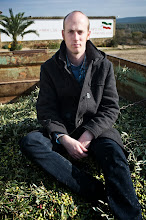Fontainebleau-dried
I wrote this for The Guardian's 'Short Cuts' section in the space of about 45 minutes, but they didn't want it. So I thought I may as well do something with it...
Did anyone ever play a game called Fish!? It was kick-ass. You had to fight against a group of gill-ed gangsters called the Seven Deadly Fins. They don't make 'em like that anymore, which is probably for the best. I've got soup to make you know.
In the days before X-Box 360s and Pro Evolution Soccer 5, the most invigorating computer gaming experience you could hope for involved typing ultra-simplistic instructions like ‘walk forward’ or ‘pick up box’ only to be told, invariably, ‘this command has not been recognised’. This interactive ‘text-gaming’ thrived in the 1980s, when personal computers could store about as much data as a single digital photograph, and gamers managed without the 3D graphics, dance-mats, and ‘ultra-realistic death scenes’ that are borderline-mandatory today.What I didn't mention in the article was that the guy's previous film was a five-and-a-half hour long documentary about message boards. I'm serious. Sounds fucking thrilling.
Last week Wired News reported that lost text classics like ‘Zork’ and ‘Adventure’ are to be given a reappraisal by American film-maker Jason Scott in a new documentary called ‘Get Lamp’. Scott is hoping to save a pivotal chapter in the development of computer games from being lost to the recycle bin of history. But is it really worth saving? Most of my childhood memories of these games are of scenes like this:
Computer: you awake on the floor with a nasty headache. You are in a dimly lit room in an early-modern French castle. There is a painting on the far wall. On your left-hand side is a door. On your right-hand side is a table. In the distance you can hear screaming. The faint aroma of burning flesh drifts through an open window. You could do with a haircut.
Dan: ‘stand up’
C: you stand up.
D: ‘walk forward’
C: you walk forward. You are now standing in front of the painting.
D: ‘look at painting’
C: the painting is a religious homage to an obscure Saint, possibly from the Fontainebleau School. It is very valuable. It would be worth a lot of money on the black market. Maybe you could steal it, sell it on, and use the money for a haircut.
D: ‘steal painting’
C: I do not understand ‘steal’
D: ‘nick painting’
C: I do not understand ‘nick’
D: ‘half-inch painting’
C: I do not understand ‘half inch’
D: ‘take painting’
C: you cannot take the painting. That would be stealing, and stealing is wrong. Didn’t your mother tell you that? In any case it is attached with iron chains to the wall. You would need a blowtorch to remove it from the wall.
D: ‘look for blowtorch’
C: a blowtorch?! This is early-modern France! Weren’t you listening at the beginning?
D: ‘spit on painting’
C: I do not understand ‘spit on’
D: ‘punch painting’
C: I do not understand ‘punch’
D: ‘kick painting, urinate on painting, defecate on painting, look askance at painting, give painting a negative write-up in the Tate gallery’s official magazine’
C: no-one likes a philistine. Especially one who so obviously needs a haircut.
Did anyone ever play a game called Fish!? It was kick-ass. You had to fight against a group of gill-ed gangsters called the Seven Deadly Fins. They don't make 'em like that anymore, which is probably for the best. I've got soup to make you know.

.jpg)




4 Comments:
fair play mate - wired made it sound like a five hour long film (not a documentary series) and i can't think of any films over three hours long that aren't pretty trying.
*waits for suggestions to the contrary*
anyway correction duly noted. good stuff on the creative commons business too, right on.
How did the guy track you down? Will the Odious Colin Warnock be after me?
I still think it sounds boring, unless of course one of the episodes was about the use of bulletin boards for child sex grooming. 4 years! Mark Spitz trained for and won seven gold medals in that time. Think what you might have achieved!
Empire by Andy Warhol (eight hours of the Empire State Building) is being shown as the first film in David Cronenburg's New York season, so he must like it. It's, ultimately, good.
Incidentally each of Spitz' gold medals was set in a world record time. He also had to overcome the fear that paralysed him during the 1968 Olympics where he won only two gold medals due to fear of failure. In four years, he hardened his mind and developed the psychological profile of a winner.
john, he will have used the magical powers of google, i'm assuming. have you heard of it?
lol at your 'it's, ultimately, good' piss-take. there is, such a thing, as too many commas, innit?
Post a Comment
Subscribe to Post Comments [Atom]
<< Home